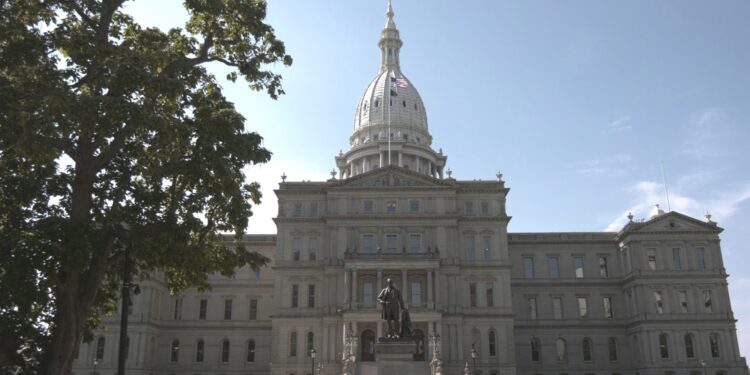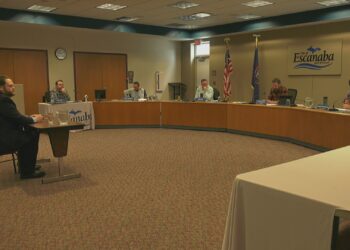LANSING, Mich. (WZMQ) – Michigan’s Capitol saw an unusual and delayed legislative year in 2025, beginning with a major political shift and ending with a budget passed three months past its statutory deadline.
When lawmakers returned to Lansing, the political landscape had changed. Every Upper Peninsula seat was held by Republicans, and the GOP gained control of the Michigan House for the first time in years.
Lawmakers immediately faced two high-pressure priorities with strict legal deadlines: changes to the state’s wage and labor laws, followed months later by financial disclosure reforms after a digital system failure.
As legislators moved through their agenda, protests became a weekly occurrence at the Capitol, with demonstrators voicing opposition to federal actions from the Trump administration, including funding freezes and immigration policies.
The state budget process dominated the session, beginning with the Senate delivering its recommendations on time, though over the projected revenue targets, while House leaders missed their statutory July 1 deadline entirely. Instead of finishing on schedule, the House spent the summer drafting its version, finally passing its proposal at the end of August.
Delays continued into the fiscal year, forcing lawmakers to pass a continuation budget just two hours after state government technically shut down at midnight on October 1. The full $81 billion budget was ultimately approved more than three months late, the latest in modern Michigan history. The plan included record per-pupil funding, expanded student mental health grants, universal free school meals, and long-term road funding.
Legislative productivity outside of the budget remained low. In 2025, lawmakers introduced nearly 2,000 bills, more than 1,000 in the House and over 700 in the Senate, but only 35 were signed into law, including 17 tied to the budget. Before the budget passed, just 13 bills had reached the governor’s desk, with only five more enacted since then. By comparison, in 2024, Governor Whitmer had signed 35 bills by April 2 and 156 by Thanksgiving.
As the Legislature turns toward 2026, lawmakers are focusing on budget transparency reforms, accountability measures, and restructuring Michigan’s economic development system. From deadlines to delays and a deeply divided Capitol, 2025 set the stage for a contentious election year, with trust and fiscal priorities at the center of the agenda.










